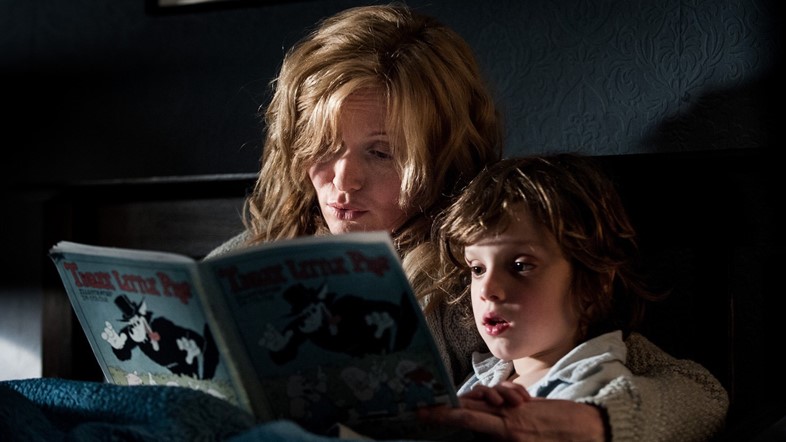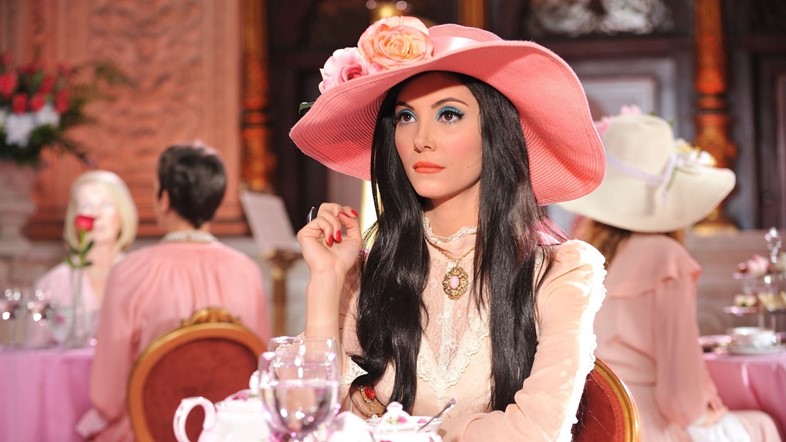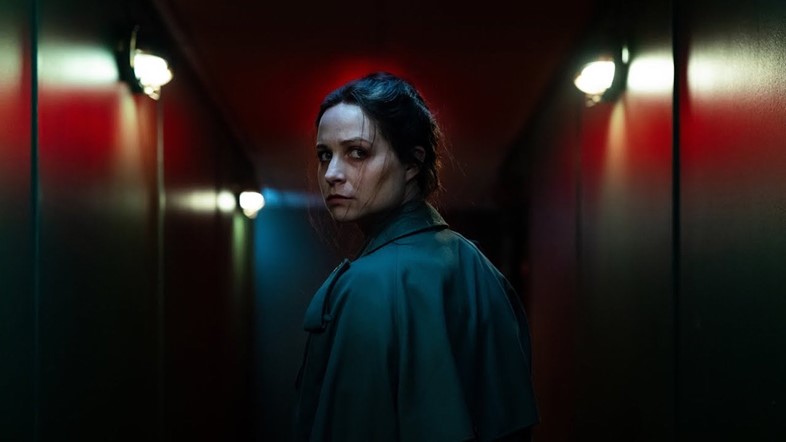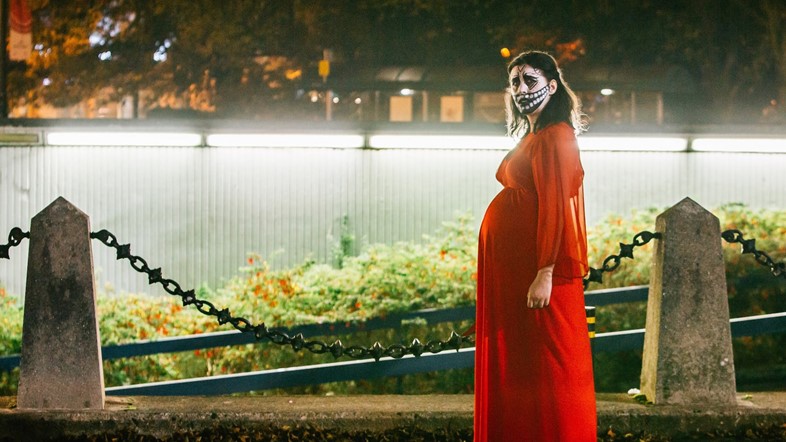Just in time for Halloween, we round up a selection of the best female-led horrors from the last decade
When the trailer for Nia DaCosta’s Candyman dropped in early 2020, the director’s name was largely omitted by outlets keen to up their SEO ranking, characterising the sequel instead as a Jordan Peele vehicle. This oversight, effectively replacing DaCosta with Peele – a producer, and co-writer on the project alongside DaCosta and Win Rosenfeld – was quickly called out on Twitter and labelled as misogynoir.
For fans of the genre, the episode struck a similar note as the infamous 2018 interview with Blumhouse Productions founder and CEO, Jason Blum. “There are not a lot of female directors, period, and even less who are inclined to do horror,” offered Blum, when asked why the company, founded in 2000, had failed to put out a single woman-directed picture. Facing instant rebuttal across social media, Blum proposed to “do better” in the future (arriving via the Blumhouse stable, Candyman sees him make good on that).
While the incidents highlight a prominent issue about the underrepresentation and mistreatment of women directors in horror (and the wider industry), the idea that it is a genre completely devoid of women directors is null: since 1903, when filmmaker Alice Guy-Blaché began working, horror has been privy to a woman’s touch. Today more than ever, horror has proven to be a salient entry point for female storytelling: last year alone saw the arrival of A24’s acclaimed Saint Maud from Alice Glass, with cult classic The Craft also undergoing the remake treatment, revived for contemporary audiences by Zoe Lister-Jones.
In engaging with directors who identify as women, studios provide an opportunity to reshape the genre, what it symbolises and who it reaches, be that with more nuanced portrayals of the trauma that punctuates many horror narratives, offering a chance to subvert tired tropes, or simply in centre a broader range of stories – as is the case with the films headlining MUBI’s latest season, The New Coven: A Female Horror Renaissance. Just in time for Halloween, the four films – The Love Witch, The Babadook, Prevenge and Censor – are each wildly different in tone, look and taste, connected only by their terrorising nature. Below, decide which best suits your plans for the 31st.

The Babadook, 2014
Jennifer Kent’s debut feature film, The Babadook premiered at Sundance in January of 2014. By December that same year, William Friedkin (director of The Exorcist) was tweeting that he had “never seen a more terrifying film than THE BABADOOK”. Its cult status only gained further momentum in 2017 when queer readings of the film captivated social media and embedded the titular figure in meme culture.
Boasting a 98 per cent rating on Rotten Tomatoes, the Australian film centres on a widow called Amelia and her son Samuel, whose birth led to the death of Amelia’s husband in a car crash while driving her to the hospital. After reading Samuel a pop-up storybook called Mister Babadook, about a mysterious figure with a top hat and talons for nails, the pair’s life violently changes as Amelia becomes haunted by the character. Despite her many attempts to reject the Babadook, including ripping the book apart, Amelia continues to be stalked, with terrifying consequences for her family.

The Love Witch, 2016
Written, edited, produced, scored and directed by Anna Biller – who also designed the sets and came up with the hyper-kitsch 70’s costumes – The Love Witch is a stylised examination of witchcraft from a feminist point of view. Biller’s sophomore picture, following 2007’s Viva, introduces us to Elaine (Samantha Robinson), a California-based witch keen to start a new life following her husband’s mysterious death. Intent on finding a lover, Elaine seduces a series of men who end up becoming obsessed with her, and inevitably dying.
“Saying that a woman’s sexuality is a source of power isn’t anything new,” Biller told AnOther in a 2016 interview. “That women aren’t owning their sexual power because they think it demeans them is a complicated social phenomenon, but it doesn’t take away from the truth of it. Elaine uses her beauty as a strategy to attain the love and respect of men, but it backfires. That’s not because her strategy is unsound, but because that’s not how patriarchy works.”

Censor, 2021
Set in the mid-1980s, around the time the Video Recordings Act was passed and films were subsequently subject to the British Board of Censors, Prano Bailey-Bond’s debut feature film explores video nasties, memory and imagination.
Referencing elements of an earlier short, titled Nasty, about a 12-year-old boy and a VHS cassette tape, Censor casts Niamh Algar as Enid, a woman who works for the British Board of Film Classification and is deemed “Little Miss Perfect” by her colleagues. Her mental health suffers when a film she passes is later referenced in a real-life murder case, and only gets worse as a previous family tragedy begins to unravel with the screening of a new film, on which she’s personally requested to work. Believing a missing sibling to now be an actress, Enid’s enquiries inevitably lead her down a violent path.
The film debuted earlier this year at Sundance and picked up the Méliès d'Or Best European Fantastic Film. It was later championed by The Florida Project’s Sean Baker, who suggested on Letterboxed that “any cinephile who has studied the history of genre films will adore this.”

Prevenge, 2017
“We flinch about pregnancy and go, ‘Ooh, we must protect women from this experience,’ but the film is saying why don’t we look at this stuff properly and not flinch away from it?” Alice Lowe, the writer, director and star of Prevenge told AnOther in 2017. “[I feel like] our generation has a fear of pregnancy, because we’re so narcissistic ourselves that we’re like, ‘Someone else needs attention? Oh that’s scary.’”
The film, which Lowe wrote while pregnant as a vehicle for her own anxieties and shot when in her third trimester, echoes the dark comedy of 2012’s Sightseers – which she also co-wrote and starred in – as first-time mum Ruth begins a killing spree to avenge her partner’s death at the apparent hands of a climbing group. Spurred on by her unborn baby, things quickly become bloody, much to the oblivion of Ruth’s awkward midwife, played by This Is England’s Jo Hartley.
MUBI’s latest season, The New Coven: A Female Horror Renaissance, can be viewed on the site now. If you’re not already a subscriber, you can sign up to 30 free days of MUBI at mubi.com/anothermagazine.
